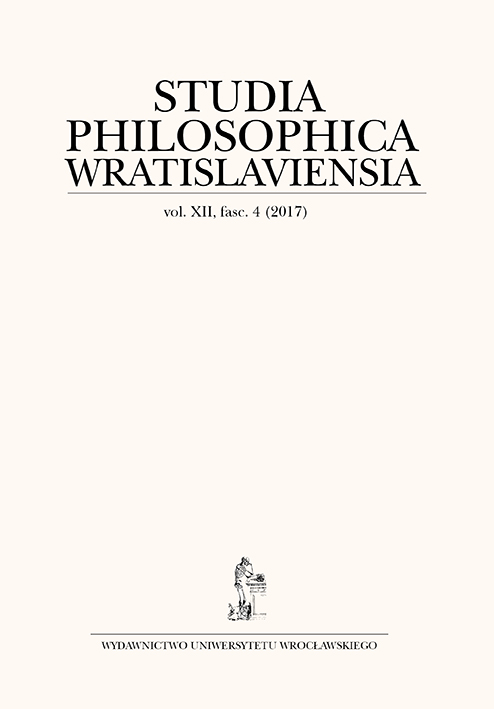

ARTYKUŁY

Mind and the definition of life: An Aristotelian contribution
In the paper I do three things: i I argue for the claim I call “Aristotelian Anti-Biologism”. This claim is that mental phenomena, and the activity of the power of reason in particular, are as such essential for life in the way in which, for example, metabolism or reproduction are essential for it; so I reject the claim which I call “The Biologism of Life” that only biological phenomena as opposed to mental ones are essential for life. The main line of argument is that if mental phenomena were not essential for life, they were not essential for death; but, pace “The Biologism of Death” the claim that death consists in some pure biological phenomena, mental phenomena are essential for death; I discuss “The Biologism of Death” in some detail and I offer some arguments against it, focusing mainly on the analysis of the voluntary movement of the body the rejection of “The Biologism of Death” does not amount to rejection of the immortality of the human soul. Then ii I focus in this context on Aristotle’s suggestion that the definition of life is similar to an inductive definition it does not focus on common traits of living beings, but instead grasps the principle of succession in an ordered series of kinds of living beings. Here I offer some analogies between life and some details of von Neumann’s set-theoretical definition of natural numbers. Finally iii I focus on the issue of the multiple realizability of life.